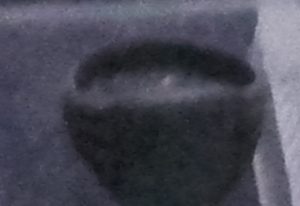
Amela Frankl: And this will pass too
curated by Ružica Šimunović
| Exhibition opening:
October 20, 2017, @ 8:00 p.m.
@ 8:15 p.m., performance of the new work
| Artist’s talk
October 21, 2017, @ 7:00 p.m., moderated by Ružica Šimunović
| The exhibition is a program of Gallery Weekend Zagreb
October 20 through 22, 2017 see the full program
| Exhibition remains open until November 11, 2017
Gallery Hours: Tuesday – Saturday 12:00 – 7:00 p.m.
During Gallery Weekend Zagreb
| October 21, 2017, Saturday, 12:00 – 7:00 p.m., artist’s talk moderated by Ružica Šimunović
| October 22, 2017, Sunday 11:00 a.m. – 5:00 p.m., 11:30 a.m,brakfastExhibition This will pass too is the first exhibition of Amela Frankl at the
Institute for Contemporary Art
Trg kralja Tomislava 20, Zagreb
+
in the gallery and guided tourInstitutefor Contemporary Art. The artist at the exhibition presents a selected entity of works that speak of her interest in past events relating to the personal, family, and scars of the entire social community we still live with.
At the opening of the exhibition, Amela Frankl will perform a new work in the gallery of the Institute for Contemporary Art, based on the museum artefact from the Jasenovac Memorial Park.
“Three unfinished stories. About the consequences of historical and social events, the individual and the community, about the unspoken facts, about the inherited family burden that commits, the transmission. Topics are old, sensitive, often overlapping, suppressed. ” A.F.
“Thus I open the story of three stories by Amela Frankl. It can be said that they are implicitly linked to the traumas of the Holocaust, they spin around the questions of the conjunction, in the words of Giorgio Agamben, the bare life and sovereign power. The artist states that she “does not call for accountability or responsibility”. And I believe her. Not because I blindly accept her claim, but because she convinces me by the way she tells these stories. Now that they are in front of us, it is somehow clear that their execution must have been preceded by the time of suspicion and contractions of thoughts, a process that required touching the stitches of wounds, the infinite opening of identity creases and their embossing … all the way to calming of passion, to the tranquility. I would almost call it commemorative.”
From the text by Ružica Šimunović




